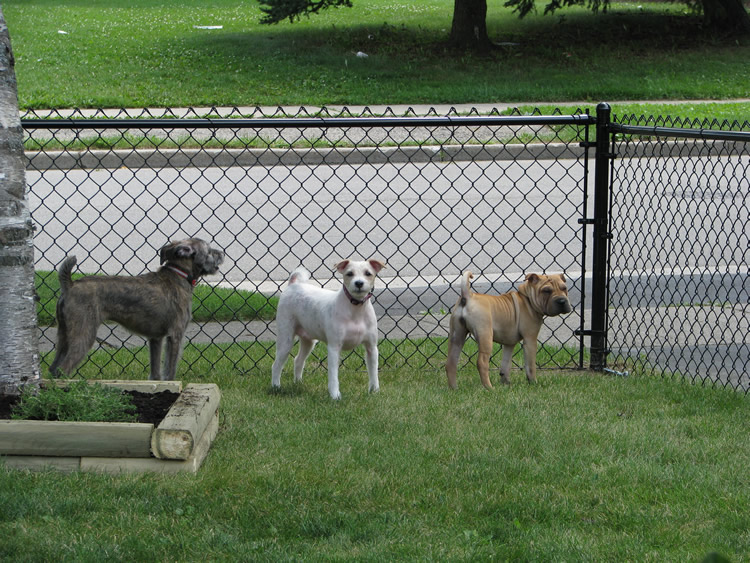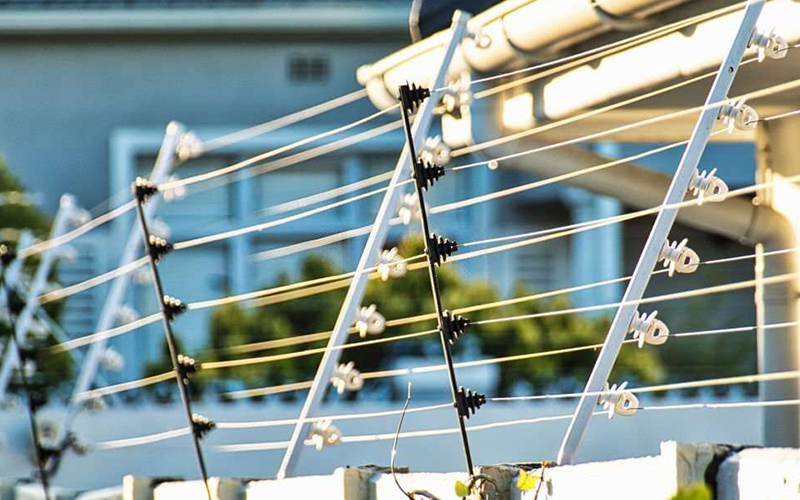When is it Legal to Install an Electric Fence?

If you’re planning on installing an electric fence, it is important that you know the Bylaws for your area. Depending on where you live, it may not be legal to install an electric fence at all, or it may only be allowed under specific circumstances. Know the Bylaws before you invest in a fence that may not be allowed in your area! For all of the following cities, towns, and counties, electric fences are only permitted on farm lands – not within the city. However, each municipality and area has its own Bylaws and regulations regarding what is or is not considered farm land and specific regulations about what is and is not allowed regarding electric fences on farm land. For more information, contact Jay Fencing now!
Note: This is not legal advice.
Fencing Bylaws – Can I Install an Electric Fence?
The following list is summarized information collected from each respective city, town, or township’s bylaw information page.
The City of Waterloo
No electric fences are permitted.
The City of Kitchener
Electric fences are only permitted on farm land for the use of containing livestock.
The City of Hamilton

No electric fences are permitted on any property except on farm land used for the protection of livestock and crops. The fence must meet any requirements set out by the Canadian Standards Association.
The Town of Erin
An electric fence may be used only for agricultural purposes, with two stipulations:
1. The fence can only have a maximum of 12-volt trickle charge
2. Its only purpose is to contain animals
Brant County
 No electric fences are permitted except on farmland (“land designated as agricultural by the zoning bylaws”) used for the protection of livestock. Electric fences must follow these guidelines:
No electric fences are permitted except on farmland (“land designated as agricultural by the zoning bylaws”) used for the protection of livestock. Electric fences must follow these guidelines:
1. Maximum electrical current cannot be over 120 volts at 0.04 amps
2. The electric portion of the fence must begin at least 1.21 meters (4 feet) from the ground level unless a different height or construction is found to be a normal farming practice
City of Woodstock
No electric fences are permitted except on land that has been defined on record at the assessment department as “farmlands.”
Didn’t see your city or town listed above? Click here to view Jay Fencing’s complete bylaw listings page.
Why Install An Electric Fence?

There is primarily only one use for an electric fence: the containment of animals, usually on specified agricultural land. Electric fences are never meant to harm livestock, only to startle them to keep them within the property’s boundaries and safe from harm. Electric fences are great at keeping your animals in and unwanted animals out.
If it is legal in your area to install an electric fence, you may be wondering what type is best for your livestock. Remember, each city, town, or township has specific bylaws and regulations that must be followed when erecting an electric fence. Some of the following suggestions may not be possible in your area. If you aren’t sure about the rules and regulations in your area, read the bylaws or call a representative from your area to find out.
There are suggested types of electric fencing based on the animals and livestock you are trying to contain.
- Chickens/poultry: Electric netting or a few wires spaced apart to keep poultry in and predators out
- Sheep and Goats: Three wires: 10, 20, and 30 inches off the ground
- Pigs: Use poly ribbon or rope and start with wires at 8 and 16 inches off the ground
- Horses/mules/donkeys: Place 3 wires at the average height of your herd’s knees, point of shoulder, or slightly below withers
- Cattle: Cattle are the easiest to contain and usually only require one strand of poly wire right at nose level
Source: MyFarmLife.com
Electric Fence Alternatives

If you do not own a farm but wanted an electric fence to keep your dogs safe or your property secured, there are many safer alternatives that comply with the bylaws of your area. If you are worried about your dogs escaping, proper training and regular fencing can easily do the trick. A wooden fence provides both privacy for your property, a barrier to keep intruders away, and a secure containment option for pets.
A chain link fence is an affordable option that, although providing limited privacy, is a great and cost effective way to keep beloved pets safe in your yard. If your area allows chickens to be kept on non-agricultural land, you may not be allowed an electric fence. In this case, plastic fences or netting can effectively be used to contain your poultry and keep them safe.
Source: greensborofences.com and omafra.gov.on.ca
Jay Fencing – Helping You Pick The Perfect Fence
The best way to determine which fencing option is right for you is to reach out to Jay Fencing Ltd. Let Jay Fencing deal with the fine print and bylaws and security headaches while you focus on your business and family, all at the very best value. With Jay Fencing you can expect these services every time we serve you:
- Master level craftsmanship and attention to lifespan augmentation
- Careful consideration of community requirements
- Personal and property security
- Protected play for children and pets
- Over 28 years of experience delivering quality service to our clients
“We absolutely love the fence. It looks fantastic and our neighbours were so impressed with the work that was completed. Our dog is loving the backyard. We think he believes that he is at a cottage and not his own backyard.”
– Chain-Link Fence, Guelph – More testimonials here
We service customers everywhere from Stratford to Brantford, Mississauga to Fergus, and everywhere in between. Book a consultation today and Jay Fencing can help you pick the right perimeter for your property.

